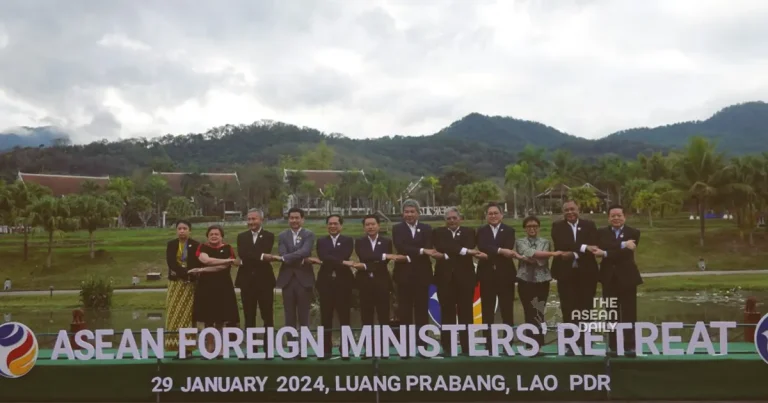29-1-2024 (VIENTIANE) In a show of unity, foreign ministers from Southeast Asian nations have expressed their support for a “Myanmar-owned and led solution” to the ongoing crisis in Myanmar. The ministers, who gathered for an Association of Southeast Asian Nations (ASEAN) retreat, also called for an end to the violent conflict that has plagued the country since the military coup in 2021.
The ministers voiced their backing for the regional peace plan and expressed confidence in the efforts of the new special envoy from Laos, Alounkeo Kittikhoun. The envoy has been tasked with reaching out to all parties involved in the crisis and facilitating a peaceful resolution. During a recent visit to Myanmar, Kittikhoun met with the junta chief, although it remains unclear if he had any interactions with anti-junta groups.
In a joint statement, the ministers reaffirmed ASEAN’s commitment to assisting Myanmar in finding a comprehensive and durable solution to the crisis. They emphasized the importance of Myanmar’s integration within ASEAN and urged an end to the violence, allowing for humanitarian access to those in need.
However, ASEAN has faced internal divisions on how to address the crisis. While Indonesia, the previous chair of ASEAN, had initiated diplomatic efforts to encourage dialogue between Myanmar’s warring factions, there are doubts about whether the current chair, Laos, possesses the necessary influence and determination to advance those efforts.
For the first time, Myanmar’s government sent a bureaucrat to attend the ASEAN meeting. The attendance of Malar Than Htike, the acting permanent secretary of Myanmar’s foreign ministry, was seen as a significant development. However, Indonesia’s Foreign Minister Retno Marsudi clarified that Myanmar’s presence does not affect ASEAN’s decision-making process.
In addition to addressing the Myanmar crisis, the ASEAN ministers also called for restraint and freedom of navigation in the South China Sea. They urged a conducive environment for further talks between ASEAN and China on the development of a code of conduct.
The ongoing conflict in Myanmar has pitted the junta against pro-democracy militias allied with a shadow government and ethnic minority armies. The military junta has branded these groups as “terrorists” and has refused to engage in negotiations with them. As a result, more than 2 million people have been displaced from their homes.




